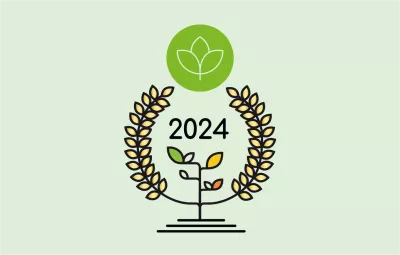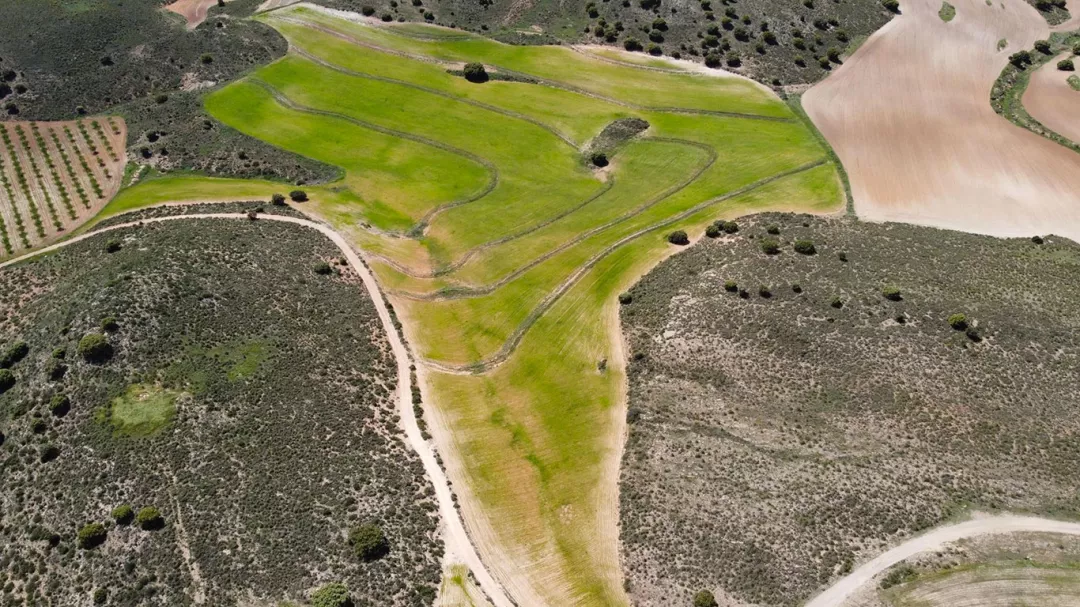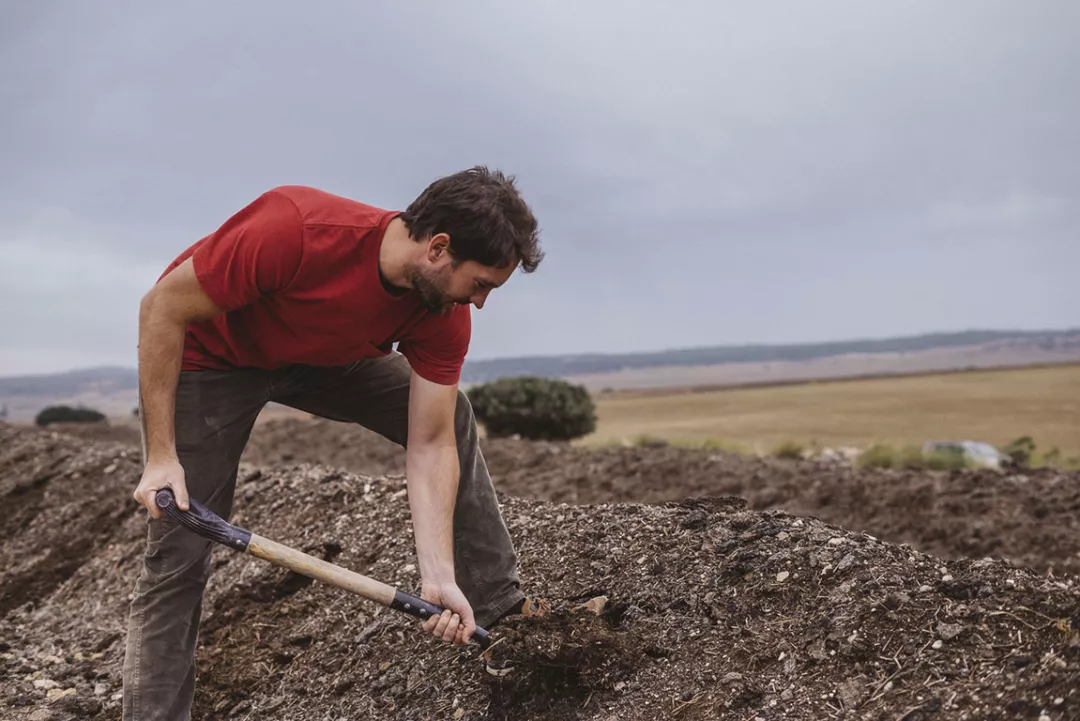General information
RDP Priority
- P4. Ecosystems management
RDP Focus Area
- 4A: Biodiversity restoration, preservation & enhancement
RDP Measure
- M10: Agri-environment-climate
- M14: Animal welfare
Beneficiary type
- Non-governmental organisation
Summary
The La Junquera Regenerative Agriculture and Rural Development Initiative is an innovative project located in southeast Spain, spanning 1 400 hectares of agricultural land- which focuses on implementing regenerative and sustainable farming practices while offering educational and entrepreneurial opportunities to rural youth. Through the Regeneration Academy, participants learn about agroecology, soil conservation and organic farming practices, promoting the revitalisation of rural communities. Since its inception, the project has restored 2 500 hectares, planted 30 000 trees, and trained over 1 000 young farmers and professionals in regenerative agriculture techniques.
The project is focused on young farmers (under 40 years old), university and high school students, rural entrepreneurs and local community members, and involves collaboration with universities for research programmes and partnerships with environmental organisations for reforestation and biodiversity conservation.
Results
- 2 500 hectares of land restored
- 30 000 trees planted.
- Soil organic matter increased from 2% to 6%.
- Soil health and biodiversity improved.
- 1 000 young farmers and professionals trained.
- Five successful regenerative agriculture courses developed.
- Resilience of local community strengthened.
- Social inclusion and youth participation promoted.
- New skills and knowledge in sustainable farming practices developed.

Promoter
Regeneration Academy
Funding
Total budget: 73 781 (EUR)
EAFRD: 25 196 (EUR)
EAGF: 32 264 (EUR)
National/Regional: 16 321 (EUR)
Ressources
Documents
Good Practice Report - La Junquera Regenerative Agriculture and Rural Development Initiative
(PDF – 719.08 Ko)
Context

La Junquera is a historic farm in the region of Murcia (southeast Spain) that has been managed by the Alfonso family for over 200 years. Located in a region characterised by a Mediterranean continental climate, with annual precipitation of only 310mm and alkaline limestone soils, the area faces serious challenges of soil erosion and water scarcity. Inhabitants moving to the cities and the remaining population ageing have had a negative effect on the local community, reducing economic and social opportunities. The La Junquera project aimed to address these issues by implementing regenerative agricultural practices that improve soil health and biodiversity, while providing educational and entrepreneurial opportunities for rural youth.
Objectives
The primary aim of the project was an ecological one, namely, to restore soil health and increase biodiversity. At the same time, there was a focus on training young farmers in regenerative agricultural practices. The combination of these two factors was also seen as a way of revitalising the rural economy and supporting local entrepreneurship.
Overall, the La Junquera project seeks to promote social inclusion and youth participation in decision-making, all while offering a range of courses that create a practical and experimental learning environment for ecosystem regeneration.
Activities
The main farming activities started with the implementation of regenerative agricultural practices, including swales, vegetation strips and keyline design, on an area of land covering 1 400 hectares. 30 000 trees were planted and 2 500 hectares of degraded land restored. There was ongoing work to enhance the biodiversity of the area by integrating livestock and planting cover crops.

The educational activities were built up in parallel, via the Regeneration Academy, which educate and train young people in agroecology, organic farming and soil conservation. This involved the organisation of intensive courses and learning programmes for young farmers and professionals. These range from one-day learning journeys and one-week crash courses to the Regenerative Academy research programme, enabling university students to carry out thesis work and internships on the farm.
There is also a holistic course to give unemployed young professionals the opportunity to improve their knowledge, experience and skills, which will give them a better chance at finding a job in a rural area.
This two-month residency programme takes place on the La Junquera farm and is a practical introduction to regenerative agri-business. Applicants live and work on the farm full time and learn from the experienced team. The programme is open to all young people living in Spain who have unemployed status.
In addition to a series of workshops on the principles of regenerative agriculture and entrepreneurship, the programme has a learning-by-doing approach, with the students being part of different learning projects where they work with different levels of responsibility about composting, soil management, traditional orchard management, water-harvesting techniques, biodiversity management, planting and harvesting aromatics, regenerative vineyard management, the management and organisation of courses, and sustainable entrepreneurship.
A number of stakeholders had to be brought on board, including the Regeneration Academy, local farmers, universities and environmental organisations. Collaborations were fostered with universities for research programmes and partnerships developed with environmental organisations for reforestation and biodiversity conservation, as well as with local government for rural development initiatives.
The project also brought about the creation of a network of young entrepreneurs and professionals sharing knowledge and best practices in regenerative agriculture. It actively involves young people (under 40) by providing them with opportunities to develop agricultural and entrepreneurial skills, participate in decision-making processes and engage in networking and contact-building activities. Specific training sessions are organised for young farmers, fostering their involvement and growth in regenerative agriculture.
Main results
The statistical benefits of the project are easy to quantify. Firstly in terms of the land involved: 2 500 hectares were restored during the project, and 30 000 trees were planted. Soil organic matter increased from 2% to 6%, and the health of the soil and the biodiversity of the land were improved.
Then, in terms of the human factor, 1 000 young farmers and professionals were trained. Five successful regenerative agriculture courses were designed, and new skills and knowledge in sustainable farming practices were developed.
The project as a whole served to strengthen the resilience of the local community while promoting social inclusion and youth participation.
Various stakeholders were involved in synergies and collaborations, most notably the locally based Regeneration Academy, environmental organisations (for reforestation and biodiversity conservation), universities (for research programmes) and, of course, farmers in the region.
The project also served as an example of good networking with the creation of a network of young entrepreneurs and professionals sharing knowledge and best practices in regenerative agriculture. It also helped to promote gender equality in agriculture, with the research programme in the Regeneration Academy having 65% women and 35% men, fostering a balanced and inclusive learning environment.
Key lessons
The La Junquera project has demonstrated the power of combining education, entrepreneurship and sustainable farming practices in restoring degraded lands and revitalising rural communities. The project's inclusive approach has fostered a sense of community and collaboration, inspiring young people to engage in regenerative agriculture and rural development.
The success of La Junquera highlights the importance of supporting local initiatives which promote environmental sustainability and socioeconomic growth. The project has shown that with the right support and resources, young people can play a crucial role in transforming rural areas and making a positive impact on the environment.
Jerónimo Romero

